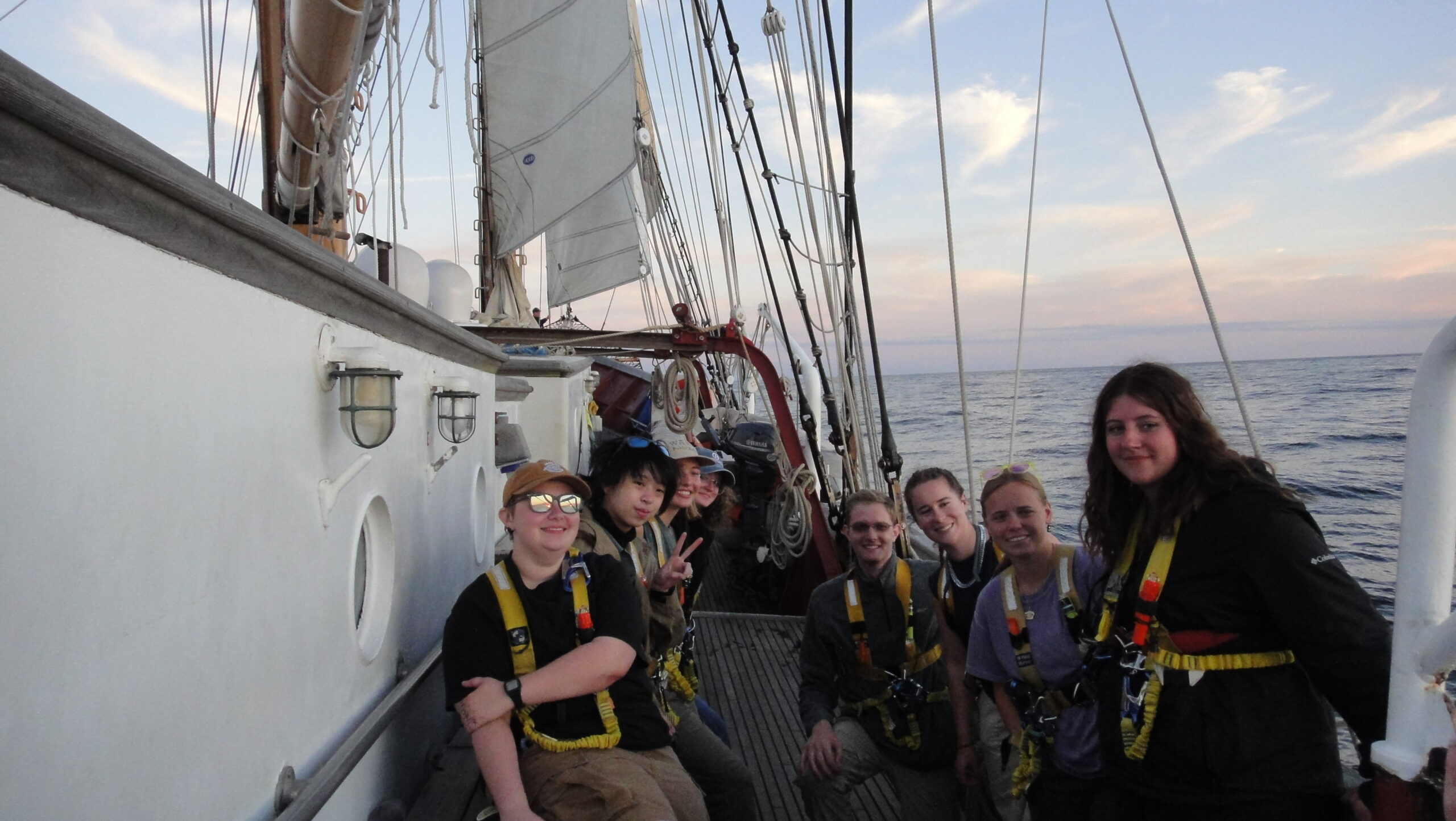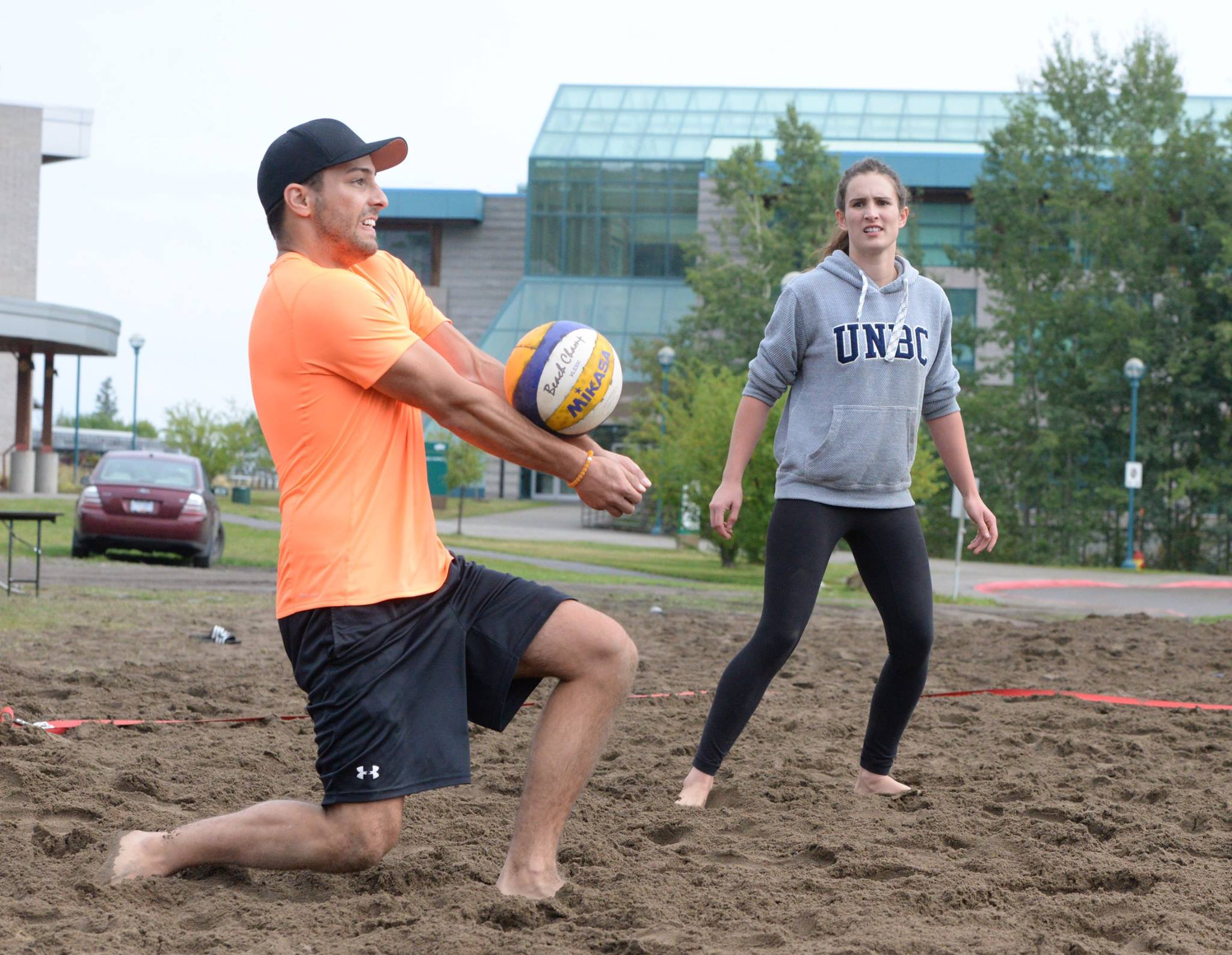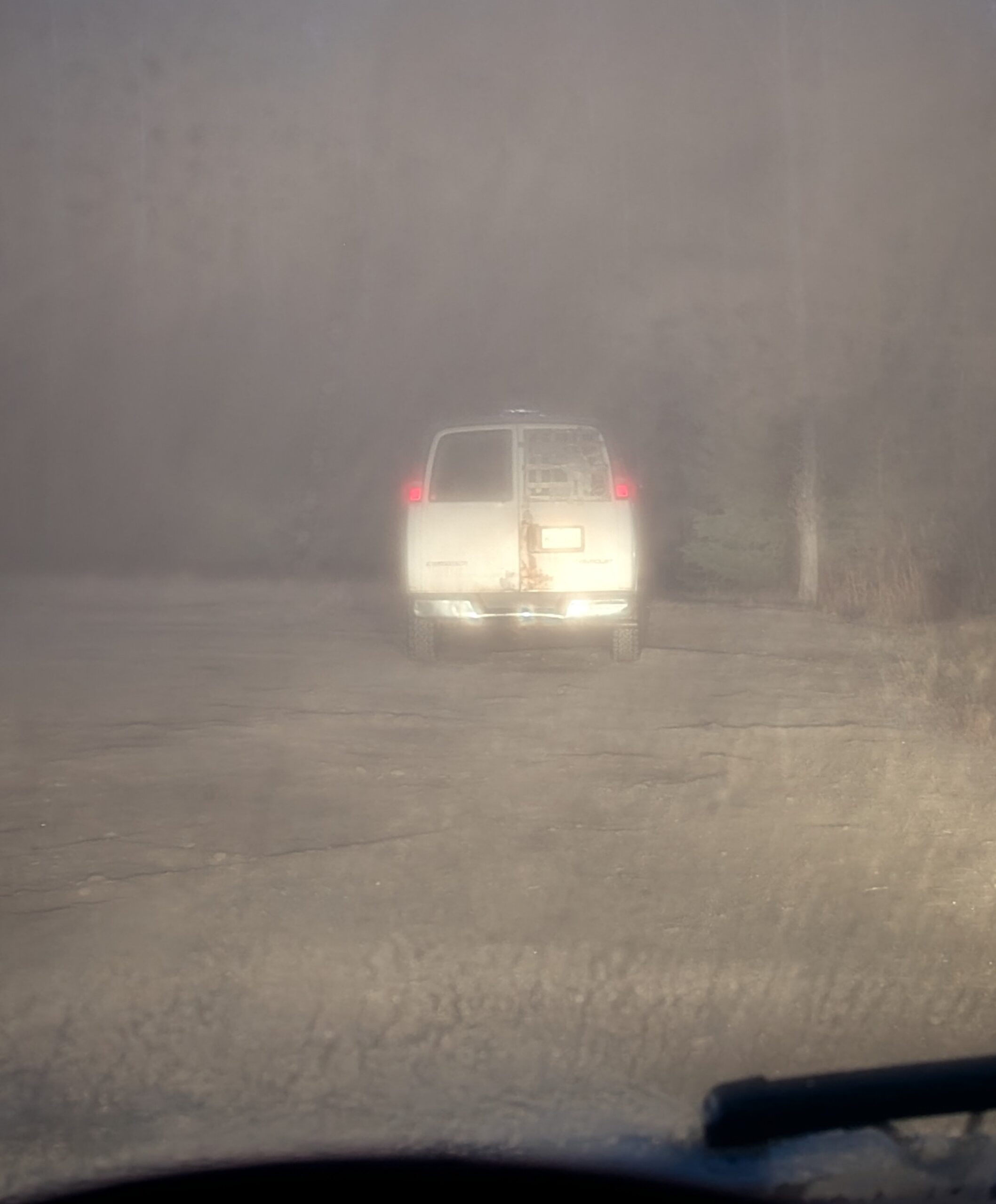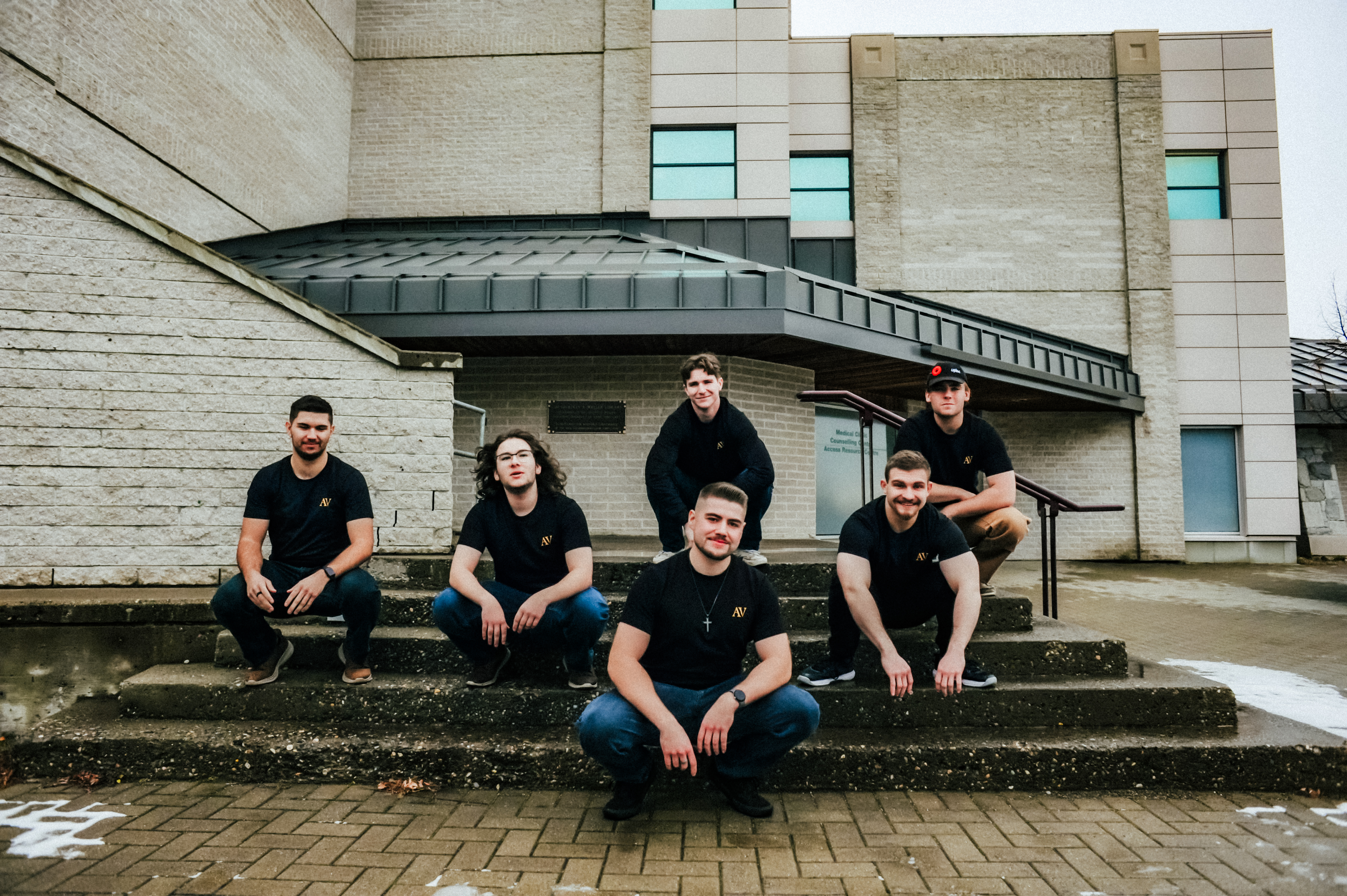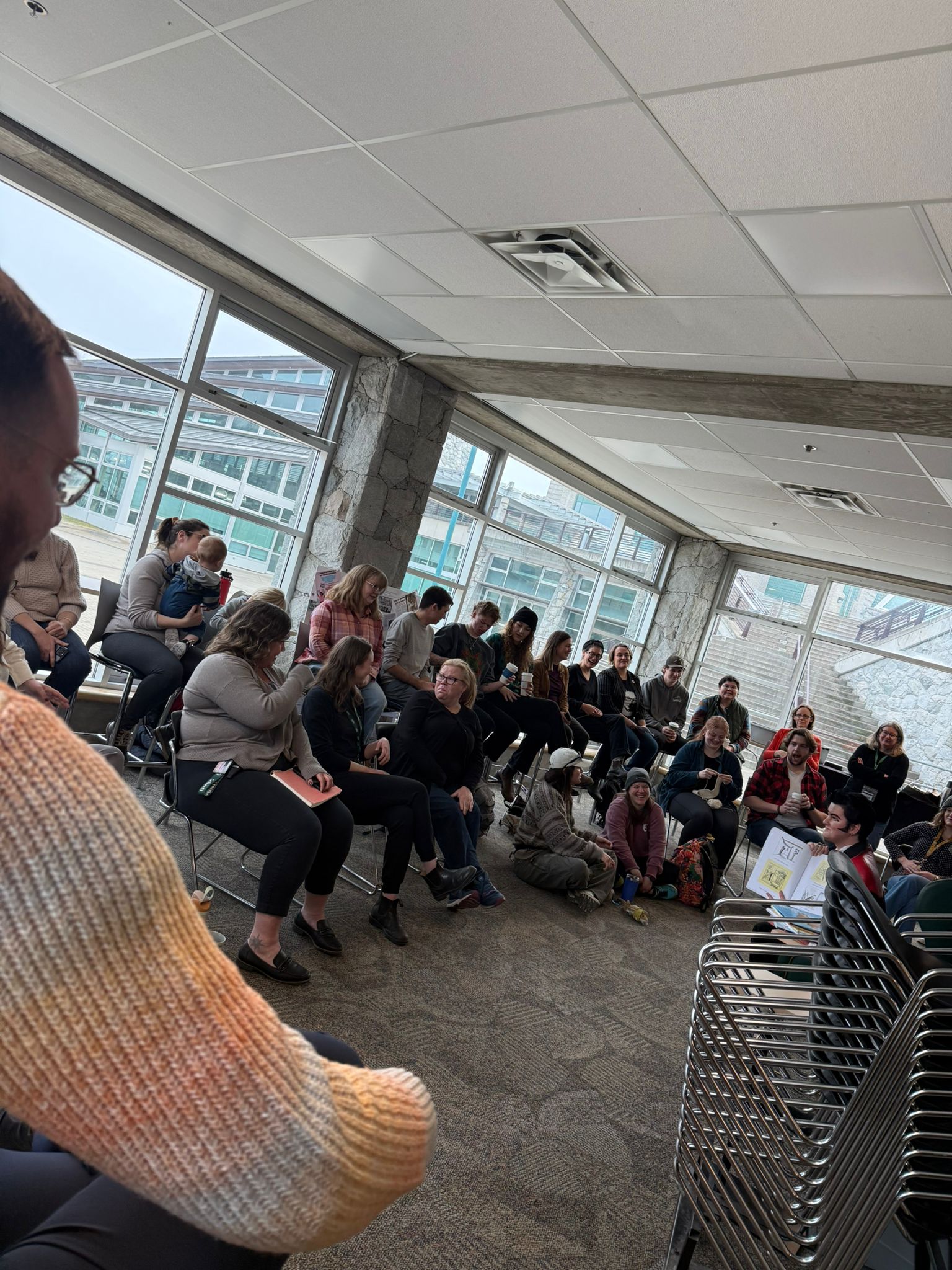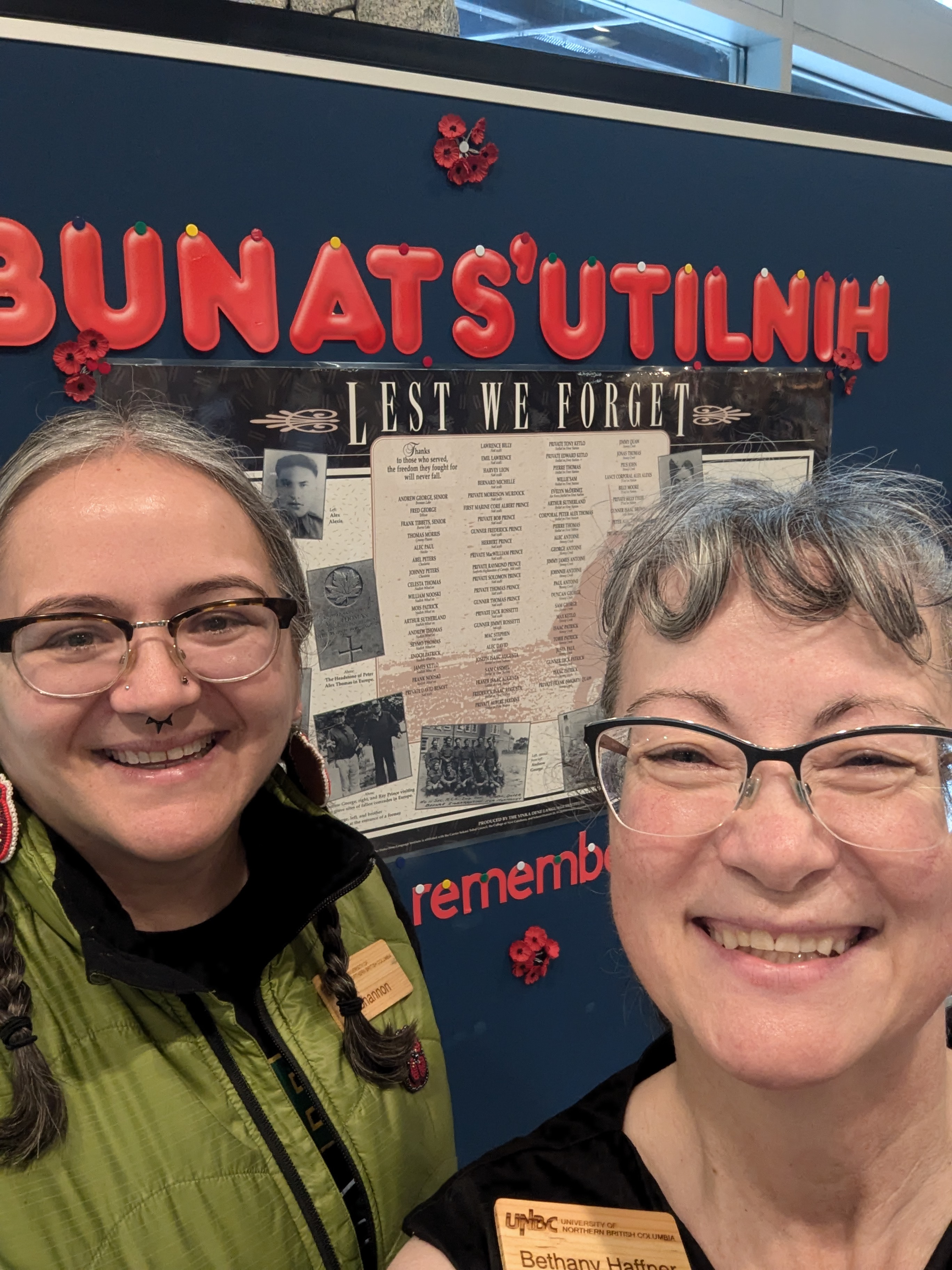Standing on the bow of the SSV Corwith Cramer, I watched Atlantic waves crash beneath me as wind whipped across the deck. As sunset painted the sky somewhere near the continental shelf, I wondered how my UNBC studies had led me to this moment, far from sight of the New England coastline.
Last semester, I joined the Williams-Mystic Coastal and Ocean Studies program in Mystic, Connecticut—a partnership between Williams College and the Mystic Seaport Museum that completely transformed my understanding of university education.
Williams-Mystic centers on experiential, interdisciplinary learning through four courses: American Maritime History, Literature of the Sea, Marine Policy, and either Oceanographic Processes or Marine Ecology. The program works to match tuition and fees to your home institution’s costs, making this exceptional experience accessible.
Adventures at Sea and Beyond
The program’s three field seminars were truly unforgettable. First came a 10-day offshore sailing trip in the Gulf of Maine. Though I arrived knowing nothing about sailing and expecting to hate it, I left reluctantly, already planning how to return. I learned hands-on sailing skills—handling sails, steering the ship, conducting scientific research, and stood 6-hour watch rotations, even finding myself on bow watch at 3 AM, stargazing while waves crashed against the hull.
Our second seminar took us to Washington State, where we explored Seattle, Neah Bay, Port Townsend, and other coastal communities. We learned from Indigenous peoples about land and fishing rights, studied salmon population restoration, and discovered how the Fraser and Columbia Rivers have shaped the landscape.
Louisiana hosted our third seminar, where we visited New Orleans, Cocodrie, Port Fourchon, and Grand Isle. We studied coastal land loss, hurricane resilience, the region’s slavery history, and environmental justice issues in “Cancer Alley.” We toured a shrimp factory, sampled alligator, and heard directly from local stakeholders and knowledge keepers.
Forging New Skills
Back in Mystic, I learned blacksmithing in a 19th-century shop at the Seaport Museum. Starting with zero experience, I progressed enough that the Museum offered me employment by semester’s end. I crafted hooks, knives, tools, bottle openers, and keychains—all of which somehow made it home in my suitcase.
On my final day, during a historical reenactment set in 1876, I visited my instructor to say goodbye. Unable to break character with visitors watching, she simply hugged me and slipped a small forge-welded heart into my hand, a perfect symbol of my Mystic experience.
My professors provided incredible support for our self-guided research projects, helped us navigate the museum’s maritime archives, guided us through policy projects, and even led our Moby Dick discussion aboard the Charles W. Morgan, the world’s last wooden whaling ship.
This study abroad experience has been the highlight of my university education. I’d encourage anyone to study abroad without hesitation. Traveling through education offers unparalleled opportunities to immerse yourself in different cultures, meet diverse people, and try new experiences you’d never encounter otherwise. UNBC offers numerous study abroad opportunities beyond Williams-Mystic, take advantage of them to earn credits while expanding your horizons.
